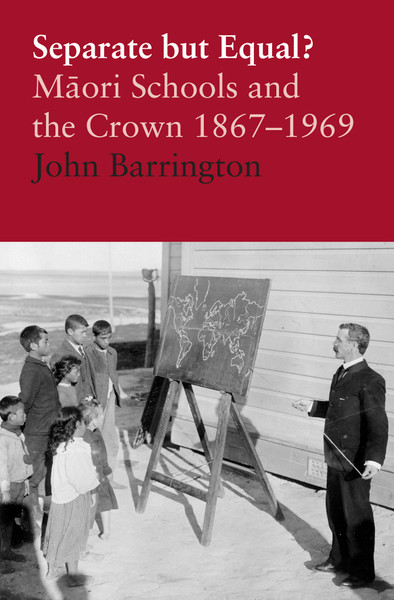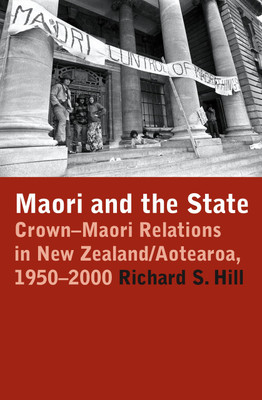Hide Description- Show Description+
Paperback, 140 x 210mm
January 2008
A system of government primary schools for Māori children created by Parliament in 1867 was regarded as a temporary measure until they learnt English and were Europeanised. But it lasted for 100 years despite criticisms of ‘separatism’ and ‘pampering’ of Māori.
Official policies for the schools reflected European attitudes towards Māori, including the view that they were particularly suited to a practical, non-academic type of schooling leading to manual and domestic occupations. The policy of assimilation, designed to turn Māori into brown Europeans, was not modified until the 1930s when a cultural renaissance led by Āpirana Ngata, combined with influences from anthropology and Britain’s African education policies, contributed to a limited form of bi-culturalism.
Praise for Separate but Equal
‘To answer the question he poses in the title, Barrington takes the reader on a fascinating journey. He describes the challenges and obstacles faced by the schools, explores controversial elements such as punishment for speaking Māori, and illustrates his narrative with photographs and illuminating quotes from contemporary documents. Teachers, for example, were advised by their Crown employer to be “mild but firm” because Māori children were “so easily managed that hardly any difficulty should ever be expected in dealing with them”. In his conclusion, Barrington draws attention to the fact that a little more than a decade after the separate school system was abolished, new Māori learning institutions were being established across the early childhood, primary, secondary and tertiary sectors. This time, they were driven and staffed largely by Māori. This book is recommended to those who would like to know more about Māori development, and particularly about the Crown’s evolving policies on educating young Māori.’
—PSA Journal November 2008
‘Barrington has devoted his working life to recording this history, and for anyone with an interest in education, race relations, and those times it is all here in great detail.’
—James Ritchie, Waikato Times
John Barrington is the foremost historian of the schools. In this book he draws on an extensive range of new material, including theses, Waitangi Tribunal research and oral history projects, to tell their story, together with those of the Māori denominational boarding schools and state Māori district high schools. The voices of Māori on schooling, which remained largely hidden in many earlier studies, are given a new prominence.






